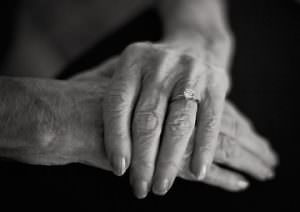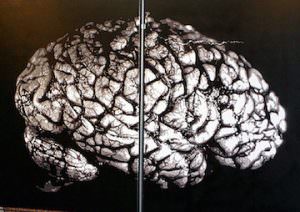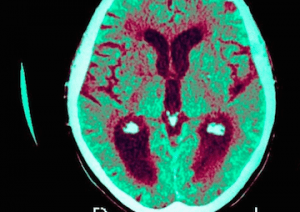More Light on the Importance of Sleep
A neuroscientist's research and book emphasize the health threats of sleep deprivation. And another study supports some old advice: Don't go to bed angry. Pixabay
Pixabay
Sleep is one of those subjects we all want to know more about, although even scientists who dedicate their careers to studying it have trouble finding conclusive information on it. But recent research reveals how important sleep is to one’s health, as well as one factor that’s keeping you from getting shut-eye.
Neuroscientist Matthew Walker, whose new book, “Why We Sleep,” tackles crucial questions regarding resting, concludes that modern society has stigmatized sleep, invaded our rest time with work and made sleep more difficult since we “electrified the night,” not only with lightbulbs but with screens of all shapes and sizes.
And, according to Walker, the results of sleep deprivation are downright perilous to our health. Here’s an excerpt from The Guardian’s piece on Walker’s research:
Sleep has a powerful effect on the immune system, which is why, when we have flu, our first instinct is to go to bed: our body is trying to sleep itself well. Reduce sleep even for a single night, and your resilience is drastically reduced. If you are tired, you are more likely to catch a cold. The well-rested also respond better to the flu vaccine. As Walker has already said, more gravely, studies show that short sleep can affect our cancer-fighting immune cells. A number of epidemiological studies have reported that night-time shift work and the disruption to circadian sleep and rhythms that it causes increase the odds of developing cancers including breast, prostate, endometrium and colon.
Getting too little sleep across the adult lifespan will significantly raise your risk of developing Alzheimer’s disease. The reasons for this are difficult to summarise, but in essence it has to do with the amyloid deposits (a toxin protein) that accumulate in the brains of those suffering from the disease, killing the surrounding cells. During deep sleep, such deposits are effectively cleaned from the brain. What occurs in an Alzheimer’s patient is a kind of vicious circle. Without sufficient sleep, these plaques build up, especially in the brain’s deep-sleep-generating regions, attacking and degrading them. The loss of deep sleep caused by this assault therefore lessens our ability to remove them from the brain at night. More amyloid, less deep sleep; less deep sleep, more amyloid, and so on. (In his book, Walker notes “unscientifically” that he has always found it curious that Margaret Thatcher and Ronald Reagan, both of whom were vocal about how little sleep they needed, both went on to develop the disease; it is, moreover, a myth that older adults need less sleep.) Away from dementia, sleep aids our ability to make new memories, and restores our capacity for learning.
And then there is sleep’s effect on mental health. When your mother told you that everything would look better in the morning, she was wise. Walker’s book includes a long section on dreams (which, says Walker, contrary to Dr Freud, cannot be analysed). Here he details the various ways in which the dream state connects to creativity. He also suggests that dreaming is a soothing balm. If we sleep to remember (see above), then we also sleep to forget. Deep sleep—the part when we begin to dream—is a therapeutic state during which we cast off the emotional charge of our experiences, making them easier to bear. Sleep, or a lack of it, also affects our mood more generally. Brain scans carried out by Walker revealed a 60% amplification in the reactivity of the amygdala—a key spot for triggering anger and rage—in those who were sleep-deprived. In children, sleeplessness has been linked to aggression and bullying; in adolescents, to suicidal thoughts. Insufficient sleep is also associated with relapse in addiction disorders. A prevailing view in psychiatry is that mental disorders cause sleep disruption. But Walker believes it is, in fact, a two-way street. Regulated sleep can improve the health of, for instance, those with bipolar disorder.
The neuroscientist suggests a couple of things one can do to get more sleep and avoid the dangerous effects listed above. For one, no one should be pulling “all-nighters,” because they impair cognitive skills; and we should all start treating sleep as a priority, planning for an appropriate amount of zzz’s every night.
A recent study by Iowa State University offers another tip to those of us worried about how sleep is affecting our health: Don’t go to bed angry. That’s right—that cliché one often hears about maintaining a marriage is actually quite important to getting a good night’s sleep. The following excerpt from The Independent explains:
Research from Iowa State University has found that people who are generally angry or struggle to keep their temper have a worse night’s sleep than happier people.
During the study, 436 participants were split into three groups depending on how they dealt with anger. … The results found that people who kept their anger in tended to have the worse sleep out of the three groups.
This, the study states, could be because such people keep themselves awake by dwelling on their frustrations and find it harder to become calm enough to drift off.
Alternatively, a physical reason that could keep angry people awake is that when one feels rage, there is an increase in cardiovascular activity, which makes it more difficult to fall asleep.
So today, as you consider the myriad things on a modern person’s plate in a given 24-hour period, maybe add peaceful sleep to the list, and even set an alarm to remind you to go to bed, as Walker suggests. According to him, your life literally depends on it.
Your support matters…
Independent journalism is under threat and overshadowed by heavily funded mainstream media.
You can help level the playing field. Become a member.
Your tax-deductible contribution keeps us digging beneath the headlines to give you thought-provoking, investigative reporting and analysis that unearths what's really happening- without compromise.
Give today to support our courageous, independent journalists.






You need to be a supporter to comment.
There are currently no responses to this article.
Be the first to respond.